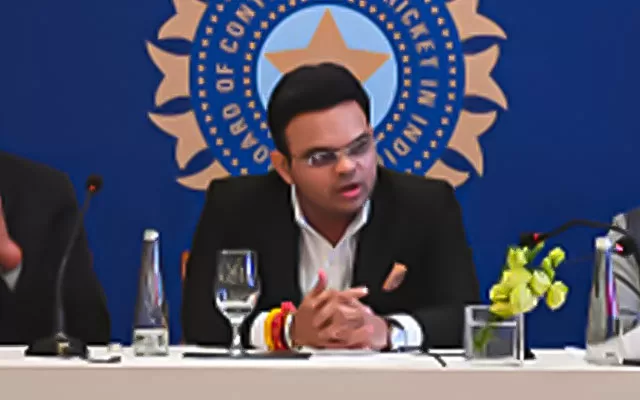[ad_1]
BCCI Secretary Jay Shah has responded to the comments made by former PCB President Najam Sethi regarding the venue for the 2023 Asia Cup. Sethi had suggested that the tournament should have been hosted in the UAE instead of Sri Lanka after India and Pakistan’s match was washed out.
The response come in the wake of Sethi’s criticism, as he questioned the ACC’s decision to avoid hosting the Asia Cup in the UAE this year, pointing out past instances of matches being played in similar conditions, including two IPLs and an ACC ODI event.
Shah, in a statement, clarified the decision-making process behind hosting the Asia Cup in the island nation instead of UAE. He highlighted the differences between the T20 format of the 2022 Asia Cup and the 50-over One-day format of the currently going tournament.
“The Asia Cup 2022 edition was played in the UAE in the T20 format and It’s important to emphasize that the dynamics of a T20 tournament cannot be directly compared to those of a 100-over One-day format,” Jay Shah said as quoted by Indian Express.
Shah stressed that feedback from high-performance teams raised concerns about playing One-day matches in the UAE in September, citing potential player fatigue and injury risks before the ICC Cricket World Cup.
“In this context, ACC members received feedback from their respective high-performance teams, expressing concerns about playing One-day matches in the UAE in the month of September. Such a schedule could have potentially led to player fatigue and an increased risk of injuries, particularly right before the all-important ICC Cricket World Cup,” he added.
Addressing the controversy surrounding the allocation of matches in Pakistan, Shah explained that the decision was made in agreement with all stakeholders.
“All the full members, media rights holder, and in-stadia rights holders were initially hesitant to commit to hosting the entire tournament in Pakistan. This reluctance stemmed from concerns related to the security and economic situation prevailing in the country,” he added.
Shah also shed light on his role as ACC President in trying to find a mutually agreeable solution. He mentioned accepting the hybrid model proposed by PCB in collaboration with ACC management.
“In my capacity as ACC President, I was committed to finding a viable and mutually agreeable solution. To this end, I had accepted the hybrid model that was proposed by the Pakistan Cricket Board (PCB) in collaboration with the ACC management. However, it’s important to note that the leadership of the PCB underwent several changes, and this resulted in some back-and-forth negotiations, particularly regarding crucial aspects such as tax exemption and insurance for matches,” he concluded.
[ad_2]
Source link

